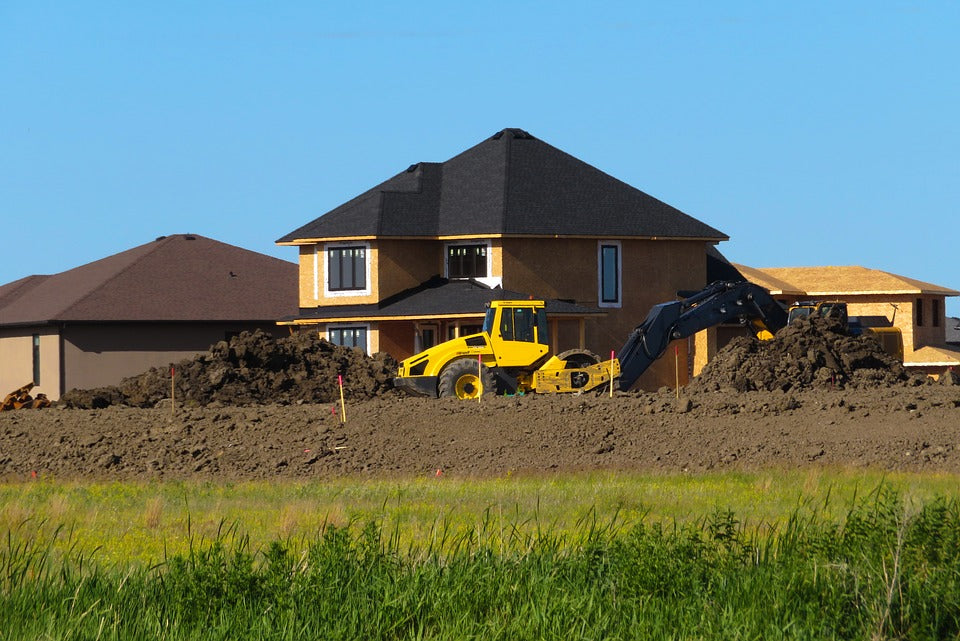
Your dream of becoming a landowner must have had you thinking and planning.
Unfortunately, the costs of pieces of land are quite expensive, especially if they’re in fast-developing areas.
At the rate land is appreciating, owning even a piece can become a source of income for you, both in the short and long term. You may decide to put it up for rent or resell it when the value appreciates significantly.
Owning a piece of land will also give you something to fall back on if you become financially overwhelmed and are in dire need of money. Additionally, it allows you to venture into businesses that will be risky to do on rented lands due to the possibility of ejection by the landowner.
How to Buy Land with No Money Down
Achieving your dream of becoming a landowner might seem like a distant wish owing to the high cost of land.
Thankfully, there are others ways of becoming a landowner with little or no money. The tips below will guide you in achieving your dream.
1. Do a Search

Searching, in this case, isn't just about looking for pieces of land that are up for sale, but also about looking for land with friendly buying conditions.
For example, search for land whose owners permit buyers to purchase their properties with loans, payment by instalment, or with the use of other properties. These types of land may not be easy to come by but you can find them with the right source of information.
Check for advert placements in your local newspapers and magazines. As you also drive by the neighborhood, watch out for signposts indicating land sale. You can also inquire from property agents, as most sellers use agents as a quicker and safer means of selling their properties.
There are also websites dedicated to landed properties adverts. Visit these websites to check out some of the pieces of land and their locations. If you find any piece of land you like, ensure you carry out negotiations physically to avoid being swindled.
As you search for land with flexible payment conditions, you must be alert to avoid buying land with hidden problems. Some sellers make buying their property easy to lure unsuspecting buyers into buying land prone to flood or one with poor soil quality.
2. Take a Loan

Consider obtaining a loan from a bank, a cooperative society you belong to, money lenders, friends, or family members. Whichever is the case, ensure that there's a legal document binding you and your lender with clear terms and conditions.
A loan is an easy way of buying land when you're not financially capable of doing so. However, search for lenders with a low-interest rate when seeking a loan.
Also, go for loans requiring a small percentage as a down payment. Although, paying a little down payment might reduce your chances of getting the loan and increase your interest rate.
Down payments are always negotiable. You can be lucky to pay very little as your down payment.
3. Use Your Skill as an Exchange
If you have one or more skills in the real estate industry, consider using your skill as an exchange or a part payment for a piece of land. A typical scenario is when you're hired as an engineer to handle the construction of an estate or as a surveyor.
If you‘re hired to survey a large expanse of land, you may request your client(s) to pay you using a piece of the land.
Apart from using your real estate related skills, you can exchange other services for a piece of land, especially if your client has many plots. You can also negotiate with your employer at work to deduct a part of your salary for an agreed period, after which you will be given a piece of land.
4. Team up with Other Buyers
There's always strength in unity. Get a team of other buyers who are also interested in buying land with little or no money. Together as a team, you can strike a better deal with a land seller.
Although the land area sold to your team may be large, it will come at a lesser price than when every team member buys their piece individually. Also, it will reduce the effect of the interest rates and down payments on each contributor.
Ensure that there's a legal document binding every team member if you consider this method.
5. Trade with Your Property
You may have valuable possessions that are not of much use to you. These properties could be vehicles, industrial machines, or any other inheritance passed to you by a deceased relative.
Put up an advert in the local newspaper indicating your interest to exchange your property for a piece of land.
Consider this method if you have properties lying idle and are depreciating fast with time. However, conduct a complete evaluation of the worth of your property before exchanging it for a piece of land to avoid being at the losing end.
6. Bear Your Seller's Mortgage

If your potential seller is servicing a loan for the piece of land you are about to buy, you can make a deal to continue servicing your seller's loan while assuming ownership of the piece of land. This kind of deal is usually favorable if the interest rate is low and fixed.
Note that not all loans are assumable. So, you must do your findings to ensure that the loan you're about to take up is assumable and your seller's lender is duly involved in the process.
Taking up your seller's loan helps you bypass the costs and stress of assuming a new loan.
7. Assume Your Seller's Debts
Your seller may be neck-deep in debt with little or no hope of clearing it before the deadline. If you have the financial capability to clear the debt, you can strike a deal with your seller to clear off the debt in exchange for a down payment for the land.
Just as with the case of assuming your seller's mortgage loan, check for a low-interest rate and any hidden clause that may be attached to the debt.
8. Lease to Own
You can reach an agreement with your seller to allow you to lease the land you are about to buy for some time.
The money gotten from leasing the land will be paid to your seller until the agreed price of the land is fully paid. In effect, you won't be making many expenses in the process other than managing the land for it to yield returns, after which you become an owner.
A seller may opt to let potential buyers lease their land if the price is high and no buyer is coming forth to buy it through a one-off payment. Both you and your seller can benefit from this arrangement.
Your seller can peg the price of the land at a higher price knowing well that you aren't the one directly funding the payment. You, on the other hand, will get to own the land just by managing the leasing of the property and remitting the rental fee to your seller for an agreed period.
9. Find Alternatives to Down Payments
Negotiate with your seller on other payment alternatives in the case where you can't afford to pay the down payment of the land. For example, you can propose paying for the land at a higher instalment rate.
If you're paying through a loan and you need to pay a down payment for your loan to be approved, you can request your seller to pay the down payment on your behalf. You compensate your seller afterwards for agreeing to the deal.
10. Consider Real Estate Companies

Most real estate companies offer buyers a payment plan when purchasing land from them.
These payment plans are designed to accommodate buyers with various levels of income. They are also well-spread such that they won't have much impact on their customers' income.
An advantage of buying directly from real estate companies is the absence of unnecessary expenses like agent fees and high-interest rates from loans. With real estate companies, full ownership of your land is given to you after completing your payment plan. And your payment plan will allow you sufficient time to complete.
Real estate companies allow you to buy your land in a well-planned neighborhood. They are genuine sources of acquiring land. And they will source and document your files properly with proper documentation systems.






1 comment
Ofori Agyemang Yaw
I want to buy land because of my parents
Leave a comment
This site is protected by hCaptcha and the hCaptcha Privacy Policy and Terms of Service apply.